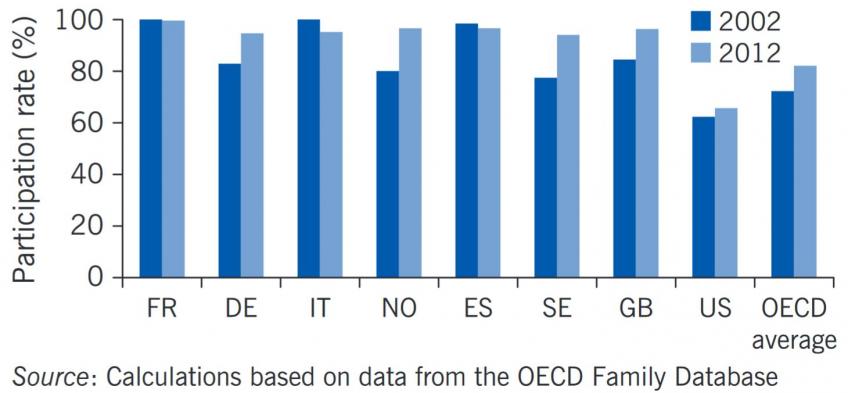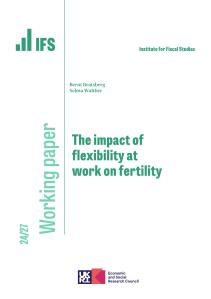Since the 1970s, many countries have established free or highly subsidized education for all preschool children in the hope of improving children’s learning and socio-economic life chances and encouraging mothers to join the labor force. Evaluations reveal that these policies can increase maternal employment in the short term and may continue to do so even after the child is no longer in preschool by enabling mothers to gain more job skills and increase their attachment to the labor force. However, their effectiveness depends on the policy design, the country context, and the characteristics of mothers of preschoolers.
Figure. Preschool enrollment of three- to five-year-olds has risen in many developed countries

Report details
- Publisher
- IZA
Suggested citation
Cattan, S. (2016). Can universal preschool increase the labor supply of mothers?. Bonn, Germany: IZA. Available at: https://ifs.org.uk/publications/can-universal-preschool-increase-labor-supply-mothers (accessed: 30 June 2024).
Related documents
More from IFS
Understand this issue

If you can’t see it, you can’t be it: role models influence female junior doctors’ choice of medical specialty
24 April 2024

What does the Conservative's higher education announcement this week mean for apprenticeships and 'low-value' university courses?
1 June 2024

Election Special: The UK economy since 2008
3 June 2024
Policy analysis

How do the last five years measure up on levelling up?
19 June 2024

Free breakfast clubs in schools: what Labour’s plans would mean for pupils and families
25 June 2024

Universal credit: incomes, incentives and the remaining roll-out
11 June 2024
Academic research

The impact of labour demand shocks when occupational labour supplies are heterogeneous
28 June 2024

The intergenerational elasticity of earnings: Exploring the mechanisms
3 June 2024

The impact of flexibility at work on fertility
11 June 2024
